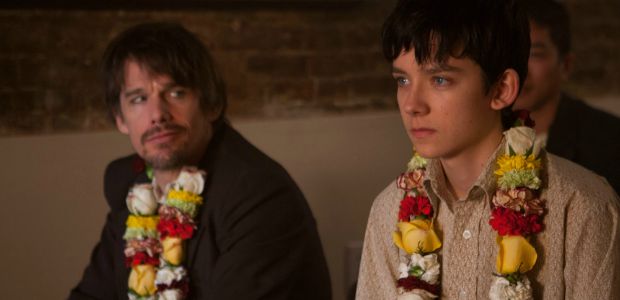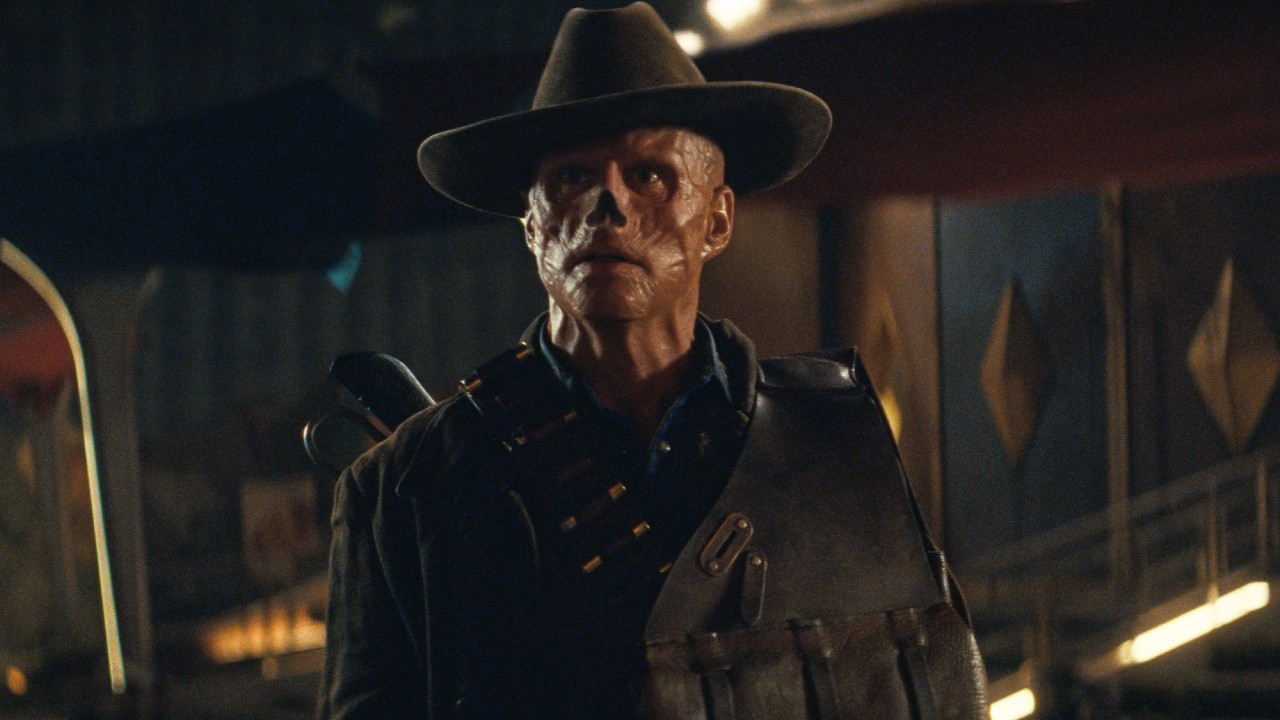I like seeing great actors in bad movies. To me, it’s truly a test of their craft and mettle. Because by elevating the woeful, you get a real sense of their talent and appeal.
From this preamble, you’re probably now under the assumption that 10,000 Saints is bad. Which it’s not. In fact, there are some genuinely engaging and touching moments. Unfortunately, in between these scenes, 10,000 Saints flirts with so many subjects and themes that none of them end up being dealt with in a satisfying manner. Because of this, viewers could easily have been left unfulfilled. But keeping the film above water is a throng of fine performances, the best of which comes from the aging acting powerhouse that is Ethan Hawke.
Hawke stars as Les, the father to Asa Butterfield’s Jude and a drug dealer. After impregnating another woman, Les leaves Vermont (and Jude) for New York and ends up having an intermittent relationship with him. However, after Jude’s BFF Teddy dies of a drug overdose, Les decides to relocate Jude to New York so he can reconnect with his son.
Once in New York, Jude resumes his friendship with Eliza (Hailee Steinfeld), the daughter of Les’ new girlfriend, Di (Emily Mortimer), who had sex with Teddy the night he died and is now carrying his child. Jude also befriends Teddy’s brother Johnny (Emile Hirsch), a straight-edged musician, who grows closer to Eliza because of her pregnancy.
As you can see there’ a lot going on. We’ve got moody, know-it-all teenagers, a pregnancy, death, threats of abortion, marriage, plus an abundance of drug use and the exploration of several broken families. But rather than ebbing together nicely, they just make it seem as though the film is screaming and pleading to be taken seriously. This isn't helped by its subplot following an alternative, hardcore band, which is all a little bit too cool for school.
Of course, as 10,000 Saints is an adaptation of Eleanor Henderson’s book these were all subjects that needed to be touched upon in order to bring the source material to life in a respectful manner. But because of this, as is the case with many other films based on novels, the adaptation is at times bumpy.
It also doesn’t help that each of these scenarios are now well-worn Sundance fodder. Even though the writer, director team of Shari Springer and Robert Pulcini (American Splendor, Girl Most Likey, The Extra Man) mix their usual blend of irreverent, comedic sensibilities with a darker aesthetic and tone and more rugged camerawork, 10,000 Saints still reeks of dozens of independent movies that have come before it. Not even its 1988 setting helps to set it apart. And by the end of the first act, you’ll have judged a book by its cover and probably already decided that 10,000 Saints is firmly mundane.
Your Daily Blend of Entertainment News
That’s because of the lack of Hawke, and once he bounds into prominence, the second half of the film hits its stride. Seriously, is there anyone aging as impressively in Hollywood at the moment? In recent years, he has been spectacular in Sinister, Boyhood, Before Midnight, and Good Kill, and while 10,000 Saints doesn’t deserve the acclaim of this quartet, Hawke’s innate warmth and charisma means that you’re always rooting for and intrigued by this fucked-up lead.
It speaks volumes for Hawke that even though Les has much in common with Boyhood’s Mason, it never feels as though as he is treading the same ground or phoning in the performance. Hawke still makes him feel unique, fresh, and basically the coolest dad in the world who you’d love to spend time with, but not necessarily have as your own father.
But it’s not just Hawke who flourishes. Each of its six leading actors are provided with well-rounded, well-meaning, truly human, but utterly flawed characters that you become slowly intrigued but never fully compelled by. Steinfeld oozes naivety and sweetness, Mortimer is rightfully protective and subtly injects tension, Hirsch is reckless but still thoughtful, while Butterfield carries the film on his shoulders with an angst-ridden, benevolence.
In the end, 10,000 Saints is indie by numbers. But because of its actor its thematic and plot flaws are overridden and injected with a sensitivity and heart, which, in that moment, you’ll find it impossible not to be caught up in. Just expect that feeling to have waned by the time you’ve left the cinema.


